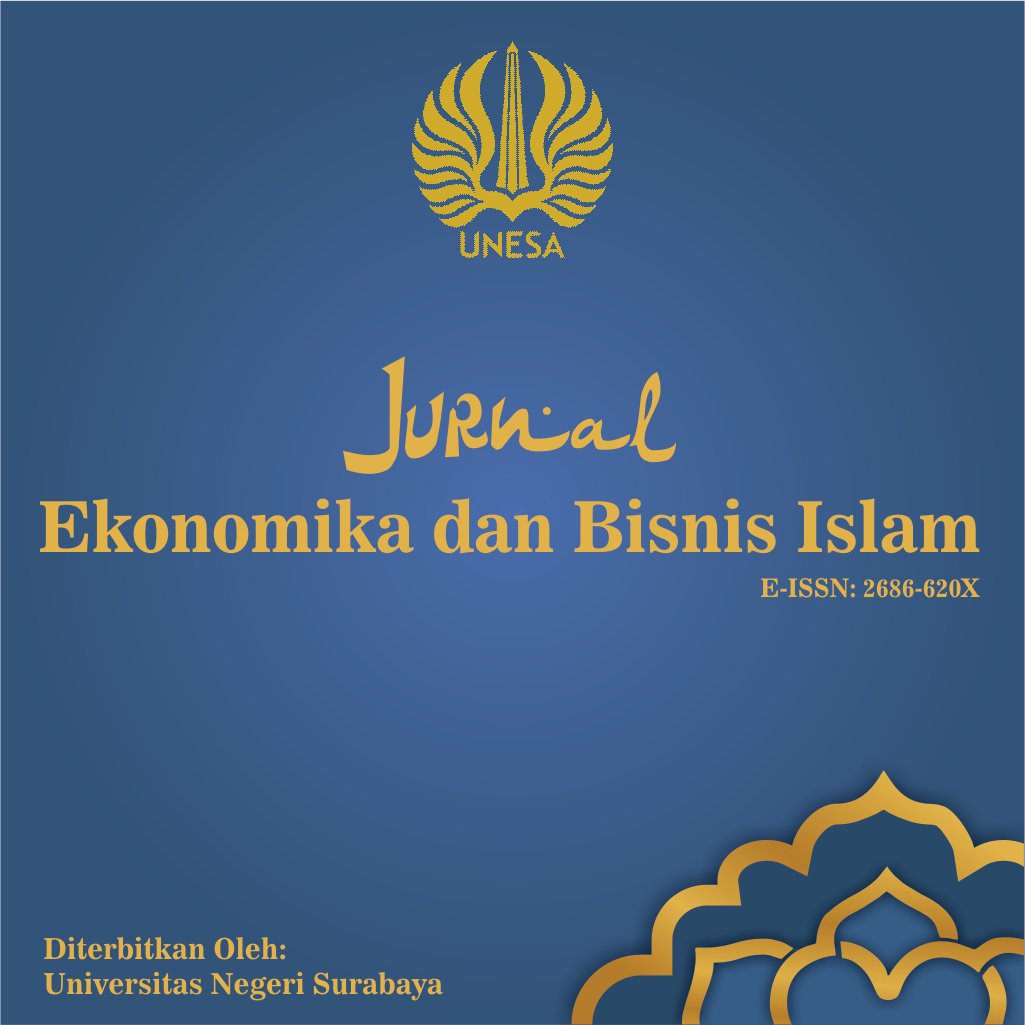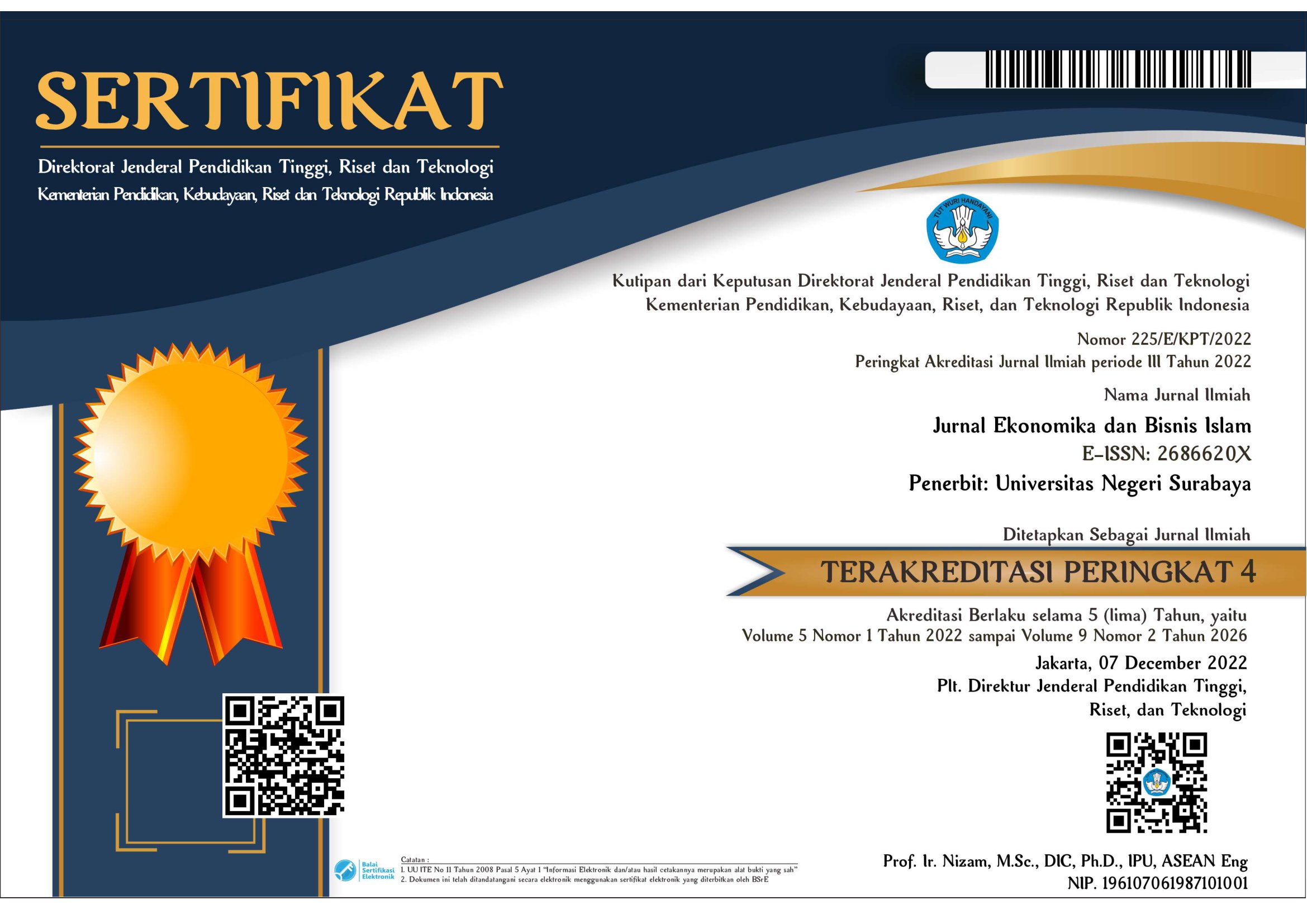Budaya dan Tradisi Buwuh sebagai Hutang Piutang dalam Adat Pernikahan di Kota Surabaya
DOI:
https://doi.org/10.26740/jekobi.v4n3.p69-83Keywords:
Buwuh, Wedding Process, Javanesse, Debt, CultureAbstract
The citizen of Java Island has an exciting and sacred cultural diversity to carry out. One of the traditions is donating to the wedding procession or what is often known as buwuh. Buwuh is an activity to attend an event or celebration to provide assistance or donations to the owner of the intention. It can be goods, money, or services. The purpose of this study was to determine the cultural practices and traditions of buwuh in the community in Rangkah Village, Surabaya City, and to find out the cultural and traditional practices of buwuh from the Islamic Economics’s perspective. This research is field research, data obtained directly from the field with data collection techniques using interviews, documentation, and observation. The nature of this research is descriptive qualitative to describe the culture and traditions of buwuh as debts in marriage customs. The results of this study indicate that there are two different points of view on the buwuh. The first group is stating that the cultural and traditional practices of buwuh are considered a grant because, in practice, they are purely gifts. The second group stated that the cultural and traditional practices of buwuh are considered an account payable because there is a transaction where they must be returned.
References
Affandy. (2011). Makna Sosial Tradisi Nyumbang. http://news.detik.com/opini/169107makna-sosial-tradisi nyumbang
Al Jabir, M. A. (2000). Post Tradisionalisme Islam. LkiS.
Aspiaty. dkk. (2020). Akuntabilitas dalam Praktik Akuntansi Upahan dan Hapolas: Sebuah Pendekatan Etnografi. Ilmiah Akuntansi Peradaban, VI(1), 37.
Cahyadi, A. (2014). Mengelola Hutang dalam Perspektif Islam. Esensi : Jurnal Bisnis Dan Manajemen, 4(1), 2.
Esten, M. (1999). Kajian Transformasi Budaya. Angkasa.
Geertz, & Hildread. (1983). Keluarga Jawa. Grafiti Pers.
Horton, & Chester. (1996). Sosiologi. Penerbit Erlangga.
Koentjaraningrat. (2002). Pengantar Ilmu Antropologi. PT Rineka Cipta.
Koentjaraningrat. (2003). Pengantar Antropologi I. PT Rineka Cipta.
Mulyana, S., & Octavianti, M. (2017). Kemiskinan dan Budaya Konsumtif: Paradoks pada Masyarakat Indramayu. Prosiding Konferensi Nasional Komunikasi, 01(01), 783.
Sadiq, S. (1997). Fikih Sunnah (Jilid 14). Pena Pundi Aksara.
Sahroni, O. (2019). Fikih Muamalah Kontemporer. Republika Penerbit.
Sari, D. A. (2020). Tradisi Tompangan dalam Perspektif Akuntansi. RISTANSI: Riset Akuntansi, 1(1), 57.
Surabaya, B. P. S. (2017). RT dan RW di Kecamatan Tambaksari Kota Surabaya Tahun 2017.
Suradi. (2015). Tinjauan Hukum Islam Terhadap Sistem Buwuhan Dalam Pelaksanaan Hajatan (Studi Di Desa Kendayakan Kecamatan Terisi Kabupaten Indramayu). Skripsi.
Wignjodipoero. (1995). Pengantar dan Asas-Asas Hukum Adat. PT Toko Gunung Agung.
Downloads
Published
How to Cite
Issue
Section
License
This work is licensed under a Creative Commons Attribution 4.0 International License.
 Abstract views: 2510
,
Abstract views: 2510
, PDF Downloads: 5683
PDF Downloads: 5683














